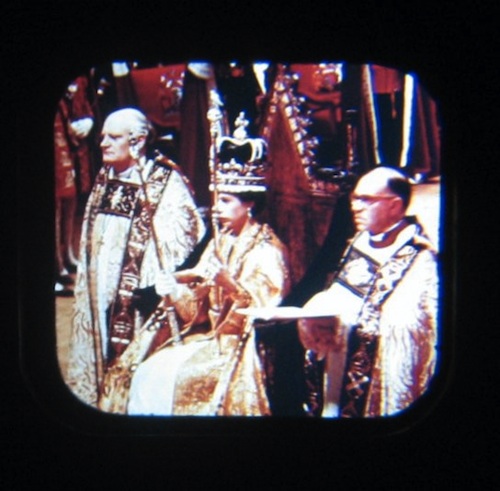Britain is divided into small regions called constituencies, each one matched to a seat in the House of Commons.
The House of Commons is so named because anyone can win one of these seats—the “commoners” are, in theory, in charge.
Newly elected MPs are not told which seat is “theirs.” They have to hunt for it during the evening of their first day at the Commons, in the period between Bath Time and Lights Out. Any MPs found in the corridors after Lights Out will be ticked off by Matron.
By tradition, Matron was wife of the Chief Whip, also known as the Chief Whife. Her task was to harry and pester newcomers to the Commons (known by old-timers as “whelks” if they’re members of your Party, or “skibbins” if they’re members of another). In recent years, the Matron’s role has changed slightly and is now advertised on the internet. The last changing of the Matron, in 2005, attracted more than 3,000 applicants under recent Equal Opportunities legislation; the present incumbent retains the traditional roles, but is also responsible for the Passing of the Commons Plate every second Tuesday evening.
Consider: Where votes are cast in a sitting seat, performance is usually improved for the current sitter, unless there’s a backwash in favor of unseating or reseating. Held seats with backwashed vote-share tend to be unseated, de-seated, or re-heated. Members representing such seats are considered “curdled” for the purposes of vote-switching. Obviously.
The voting procedure is simple. Registered voters are sent a letter explaining precisely where and when they should present themselves to cast their vote.
Held seats with backwashed vote-share tend to be unseated, de-seated, or re-heated. Members representing such seats are considered “curdled.”On arrival at the Polling Station, voters must perform an obscure dance with political attendees called Tellers. The Tellers—hilariously so named because they don’t actually tell you anything useful—will ask the voter to divulge his or her Voter Number. This number is taboo, but the Tellers are nonetheless obliged by months of historic precedent to ask for it. What follows is a complicated ritual whereby the Voter seeks to avoid the Teller, the Teller seeks to speak to them anyway, and the Voter—being English—eventually gives the Teller their number simply to make them shut up and avoid any need for embarrassing confrontation.
Inside the Polling Station, election officials will issue the Voter with a Ballot. The Ballot is sacrosanct; it is literally the ticket to democracy. Once issued with the Ballot, a Voter is not just entitled to vote, but also to remain resident within the Polling Station for as long as the election continues. Some bring chairs, kettles, rugs, and blankets if the weather is cold, and set up a jolly community party. Sometimes there will be card games, breast-fed babies, and old folk discussing dentistry. Just as things always used to be.
As the Ballot is handed over, the Electoral Man-of-Terms shouts the traditional cry: “Ballot is fine!” If the Polling Station is large, a loud hailer may be used. The Voter bows once to the Man-of-Terms, turns three times on the spot, then steps into the Voting Booth backwards. It is important to do this to avoid public shame and the spoiling of the vote.
The interior of the Voting Booth is a closely guarded secret. Ancient traditions, going back to the time of King John (1167-1216), dictate that the British General Election will be a Secret Ballot, with emphasis on the secret. None may describe the interior of the booth, nor how they actually cast their vote. Divulging such secrets is Treason against Her Majesty the Queen, punishable by expulsion to the dreaded Royal secret prison, the Isle of Wight.
There now follows a period known as the Speculatory.
During the Speculatory, facts are disallowed in British news reports. While it endures, vote counting takes place in all constituencies. The Returning Officer in each seat is in charge of ensuring that all votes are counted, then ceremonially burned in a gold cup known as a “cusp.”
There will be card games, breast-fed babies, and old folk discussing dentistry. Just as things always used to be.It almost goes without saying that a “marginal” seat is one where the Adjusted C.J.V. count is reversed on a votagraphical index. Such seats are common in Leap Years; they are represented in the House of Commons by the wearing of the Soap Hat. (This is a purely notional honor; such elected Members are not required to wear the hats except on occasions such as the Queen’s Official Birthday, the Loving Fayre of The Duke of London, and the Rubblation of Cardigans.)
The Speculatory ends with the announcement of the First Result. A man no one has heard of, from a town known only to its residents, will stand in front of a microphone and read out a list of names of unknown persons. The one matched with the highest number wins. Winners get to enter the finals, with the chance of winning their seat in the Commons.
Finally, there is often confusion about the difference between the popular vote and the number of seats. Thanks to the U.K.’s first-past-the-post electoral system, Commons seats are won once a party has taken control of 326 seats (half the Commons total plus one). As soon as this post is reached, that party is declared the Government. All other parties are then assigned victories according to an ancient formula, closely related to the number of curdled seats. Her Majesty’s Loyal Opposition comprises the most decurdled second-placed winners declared after the 326th seat declaration. Winner takes all, the house of cards falls first, Ziggy plays guitar: These proud traditions are what keeps our Mother of Democracies running, and running so smoothly.
Long live the Queen! And it’s goodnight from him.
The British electoral system can be confusing for outsiders. An explanation of its rituals and inner workings—e.g., the role of the Chief Whife—to make things clear.



